Oppression and Hunger
A post by Vermont Foodbank CEO, John Sayles
June 1, 2020 –As we wake up to another morning of news about demonstrations across the country, it’s time for all of us to make sure our voices are raised for racial justice. As CEO for the Vermont Foodbank my “lane” is hunger and food security. What does systemic violence against black and brown bodies have to do with (mostly white) people in Vermont without enough food in the house? My answer is: everything.
In 1619 the first people with black skin were brought to this land (not yet a country) as forced labor. Over the ensuing 400 years the use of force and the force of law have been systemically weaponized against people of color, and used to maintain the dominant group’s systemic power, oppressing and marginalizing people of color.
Racism, to me, is the continued enforcement of that power dynamic.
Those 400 years of custom and law have set up a system in which the default state for marginalized people is economic poverty. While it is most brutally imposed on people of color, systemic economic poverty impacts many people who are consigned to low-income work in our communities. It is important to analyze this through the lens of economic power because the creation and perpetuation of “race” as a concept has always been about exploitation.
Hunger is a direct result of poverty and economic marginalization. The predominant reason people in this country don’t have enough food is because they don’t have enough money to buy food. The issue of hunger in this country is a political choice, not a natural state.
Breaking down systemic oppression means changes to laws, customs, and culture. Are we up to the task? Because the sustainable solution to hunger is to pull out the roots, and the deepest roots are racism, the systems we have created to sustain it, and the trauma it inflicts.
So here we have tens of thousands of people in Vermont lining up for food boxes, and people across the country expressing their fury at the brutal treatment of our fellow citizens because of their race. So what does racism have to do with hunger? Everything.
“Justice” feels like a big word these days, no matter what word precedes it: food, health, racial, economic, migrant, equal . . . I could go on. In digging into the meaning of “justice,” I am left unsatisfied because the definitions and descriptions feel subjective and kind of squishy.
For the first time in a long time, I’m feeling optimistic. The American Rescue Plan Act (ARP), passed by Congress and signed on March 11 by President Biden, brings much needed support to families hit hard economically by the pandemic.
Vermont Foodbank CEO John Sayles joined host Dennis McMahon on Positively Vermont last week to talk a about hunger in Vermont, the work that the Foodbank does, and how people can access fresh food throughout the state.





